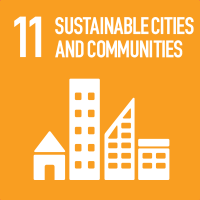Studying at the University of Verona
Here you can find information on the organisational aspects of the Programme, lecture timetables, learning activities and useful contact details for your time at the University, from enrolment to graduation.
Study Plan
This information is intended exclusively for students already enrolled in this course.If you are a new student interested in enrolling, you can find information about the course of study on the course page:
Laurea in Economia e innovazione aziendale - Enrollment from 2025/2026The Study Plan includes all modules, teaching and learning activities that each student will need to undertake during their time at the University.
Please select your Study Plan based on your enrollment year.
1° Year
| Modules | Credits | TAF | SSD |
|---|
2° Year activated in the A.Y. 2023/2024
| Modules | Credits | TAF | SSD |
|---|
3° Year activated in the A.Y. 2024/2025
| Modules | Credits | TAF | SSD |
|---|
| Modules | Credits | TAF | SSD |
|---|
| Modules | Credits | TAF | SSD |
|---|
| Modules | Credits | TAF | SSD |
|---|
| Modules | Credits | TAF | SSD |
|---|
Legend | Type of training activity (TTA)
TAF (Type of Educational Activity) All courses and activities are classified into different types of educational activities, indicated by a letter.
Financial markets and Institutions (2024/2025)
Teaching code
4S00429
Teacher
Coordinator
Credits
9
Language
Italian
Scientific Disciplinary Sector (SSD)
SECS-P/11 - FINANCIAL MARKETS AND INSTITUTIONS
Period
Primo semestre L dal Sep 23, 2024 al Jan 10, 2025.
Courses Single
Authorized
Learning objectives
The course provides a fundamental knowledge of Financial intermediation and innovation in financial services. The aim of the course is to provide students with basic but essential understandings and methodologies to in depth examine and interpret the role and the dynamics of the financial system. During the course, the structure of the financial system, the technical features of financial instruments and the regulatory context will be investigated, ensuring specific attention to the evolution of financial systems as well as to the innovation that has characterized both financial services and products recently. Focus will also be on technological innovation (FinTech) and new financing instruments for SMEs. At the end of the course, students shall demonstrate their own understanding of financial aspects of the broader economic system. Furthermore, they shall autonomously assess the dynamics of evolution that characterize financial institutions. Teaching methods consist of lectures and experts’ insights on specific topics, when needed. To develop soft skills, students might be asked to deliver project works to further explore specific topics, which will be presented during the course.
Prerequisites and basic notions
There are no prerequisites.
Program
1. The financial system and the supply of financial services
2. The theories of financial intermediation
3. Risks and their management
4. Intermediation contracts
5. The payment system and services
6. The markets
7. Financial intermediation: activities and institutional structures
8. Fintech: technological innovation applied to financial services
9. The strategy and organization of financial intermediation activities
10. Control over the financial system in the framework of the European Banking Union
11. The regulation, supervision, governance and internal controls
12. Monetary policy and the role of the ECB
Bibliography
Didactic methods
Frontal lessons.
Exercises.
For attending students there is the possibility of carrying out a project in small groups on an innovative financial activity to be agreed with the teacher.
Learning assessment procedures
Written test. The exam consists of 2 parts: a series of multiple choice questions and some specific questions. The exam could last from 75 to 120 minutes, depending on the difficulty of the test.
Evaluation criteria
The written test covers each part of the program carried out in the classroom.
At least 18/30 in both parts is required to pass the exam. The final grade will be the average of the grades obtained in the two parts.
Criteria for the composition of the final grade
For non-attending students, the written exam is the only test to pass the exam. Attending students can get additional points with the project.
Exam language
Italiano




